
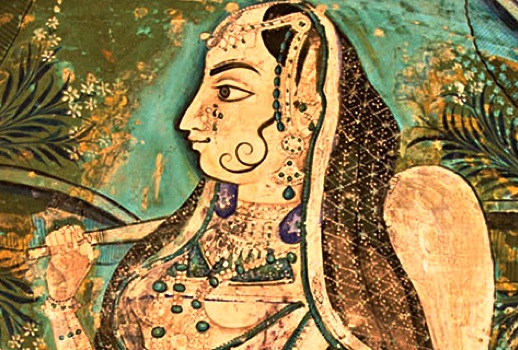
What we go to Grattacielo for is fresh young voices singing their guts out. There are always one or two, often half a dozen, who make you wonder where they have been, where they got their excellent training, how Grattacielo found them and paid them to learn and rehearse this one-shot wonder (and there are covers who must learn it, too—and once, for Mascagni’s Il Piccolo Marat, a lead tenor summoned at the last moment when the star and his replacement bowed out). All the lonely young singers—where do they all belong? They should be heard. They should be heard by us, by opera-lovers who appreciate them.
Tuesday night’s extravaganza at NYU’s Skirball Center on Washington Square, Franco Alfano’s Sakùntala, was typical. A succes d’estime at its 1921 Bologna premiere, it remained so little known that when Ricordi’s warehouse was bombed during World War II, the orchestrations were destroyed and had to be recreated from scratch by the composer (who only had a piano score) for a 1952 revival, the version used by Grattacielo, though the originals did turn up in time for performances in 2006 that are available on youtube (say the program notes). There have been several revivals since then at Rome and Wexford; Olivero did not disdain the title role.
Sakùntala is based on a fifth-century Sanskrit drama by Kalidasa about the mystical birth of Bharata, eponymous progenitor of the Indian nation, Bharatavarsha. The opera is so extravagant in its fragrant Orientalism that the composer became the obvious choice to complete Turandot when Puccini died three years later, his last act an incomplete muddle. (India, China—East is East, right? And on the opera stages of the West, they often meet.) Turandot ruined Alfano—hardly anyone remembers him now for anything else. But he did compose other operas. Teatro Grattacielo had given us Alfano’s Risurezzione; on Tuesday night, they got around to Sakùntala.
This appears to have been the New York premiere of the opera and my guess is its dernière, too. The score, sumptuously orchestrated, is mostly atmosphere and very slight substance—it had none of the juice Alfano put into Turandot, where he had Puccini’s notes and previous scenes to build on. Vocal lines consist of arioso declamation over intricate orchestration. It is clear why conductors prefer Verismo to, say, Bel Canto or early Verdi—they have far more interesting and glory-making tasks to perform. Orchestra and scenery are the heart and soul of this repertory, where singers were the heart of Bel Canto. The scenery of Sakùntala was superbly hummable, even against the pipes and bricks of the back wall of Skirball Center, and Israel Gursky led a taut, swift-moving performance full of exquisite instrumental colors.
The title role of a priestess loved and betrayed by a king (but destined to be the mother of India) was taken by Michelle Johnson, who sang Aida in Glimmerglass last year. She has a shining soprano, beautifully warm and apparently tireless, ably conveying awakening love and passionate desperation. A beat crept into her first bursts of passion but that soon disappeared. She did not have much chance to display the floating tones of an Aida, but I’d be eager to hear her try them. Shirin Eskandani and Asako Tamura, assistant priestesses, also sang with authority and sensuous personality.
The caddish King went to that necessary Verismo central figure, the stentorian tenor, in this opera almost as thankless as Butterfly’s Pinkerton. Raúl Melo took a scene or two to warm to the task, but his anguish when magical veils of forgetfulness were lifted from his eyes was phrased with distinction. Lower voices were gratefully taken by Ashraf Sewailam (a Grattacielo stalwart who should be more widely heard), Peter Kendall Clark, Damian Savarino, Young Bok Kim and Kirk Dougherty. In a full staging, no doubt, the climate would have obliged many of these figures to appear bare-chested, but even without such distractions they filled the evening with macho thrills. (The ladies’ formal gowns were far better able to nod to Oriental motif.)















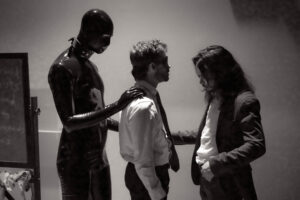

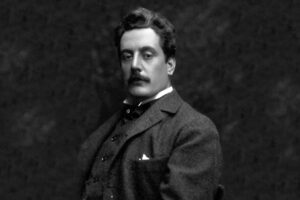
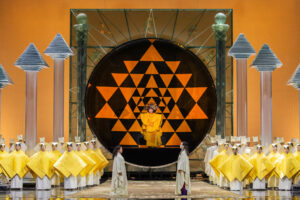
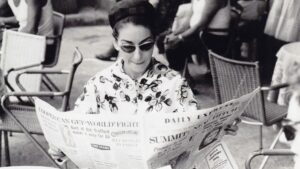





Comments